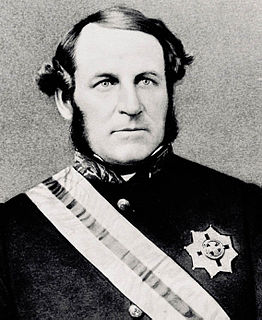A Quote by Charles Hodge
Christian humility does not consist in denying what there is of good in us; but in an abiding sense of ill-desert, and in the consciousness that what we have of good is due to the grace of God.
Related Quotes
True humility is a Christian grace and one of the fruits of the Spirit, originating in a deep consciousness of sin past and present, and leading us to discover our nothingness in the view of God, our insufficiency for any thing that is good, and prompting us, as we feel our infirmities, to strive after higher and yet higher attainments.
The Christian is in a different position from other people who are trying to be good. They hope, by being good, to please God if there is one; or — if they think there is not — at least they hope to deserve approval from good men. But the Christian thinks any good he does comes from the Christ-life inside him. He does not think God will love us because we are good, but that God will make us good because He loves us; just as the roof of a greenhouse does not attract the sun because it is bright, but becomes bright because the sun shines on it.
The way to Christ is first through humility, second through humility, and third through humility. If humility does not precede and accompany and follow every good work we do, if it is not before us to focus on, it it is not beside us to lean upon, if it is not behind us to fence us in, pride will wrench from our hand any good deed we do at the very moment we do it.
It is grace at the beginning, and grace at the end. So that when you and I come to lie upon our death beds, the one thing that should comfort and help and strengthen us there is the thing that helped us in the beginning. Not what we have been, not what we have done, but the Grace of God in Jesus Christ our Lord. The Christian life starts with grace, it must continue with grace, it ends with grace. Grace wondrous grace. By the grace of God I am what I am. Yet not I, but the Grace of God which was with me.
Pride is the switch that turns off priesthood power. Humility is a switch that turns it on . . . . Some suppose that humility is about beating ourselves up. Humility does not mean convincing ourselves that we are worthless, meaningless, or of little value. Nor does it mean denying or withholding the talents God has given us. We don't discover humility by thinking less of ourselves; we discover humility by thinking less about ourselves. It comes as we go about our work with an attitude of serving God and our fellowman.
Guidance, like all God's acts of blessing under the covenant of grace, is a sovereign act. Not merely does God will to guide us in the sense of showing us his way, that we may tread it; he wills also to guide us in the more fundamental sense of ensuring that, whatever happens, whatever mistakes we may make, we shall come safely home. Slippings and strayings there will be, no doubt, but the everlasting arms are beneath us; we shall be caught, rescued, restored. This is God's promise; this is how good he is.
Many biblical passages teach that we're not saved by our own efforts but by the grace of God alone. But the same passages also tell us good works are an essential evidence of the salvation experience. We're not saved by good works, but for good works. It begins with God's grace, and it's sustained by his grace as you shape your character by what you do as you cross the bridge.
Whatever hinders us from receiving a blessing that God is willing to bestow upon us is not humility, but the mockery of it. A genuine humility will ever feel the need of the largest measures of grace, and will be perfected just in the degree in which that grace is bestowed. The truly humble man will seek to be filled with all the fullness of God, knowing that when so ?lled there is not the slightest place for pride or for self.
Grace is not against good works! It simply does not bless on the basis of good works. We receive blessing from God based solely on the merits of His Son--blessings freely given to us in Christ and nowhere else. The completeness that is in Christ mean deliverance from trying to 'be good' and 'do right' in order to be accepted by God.



































